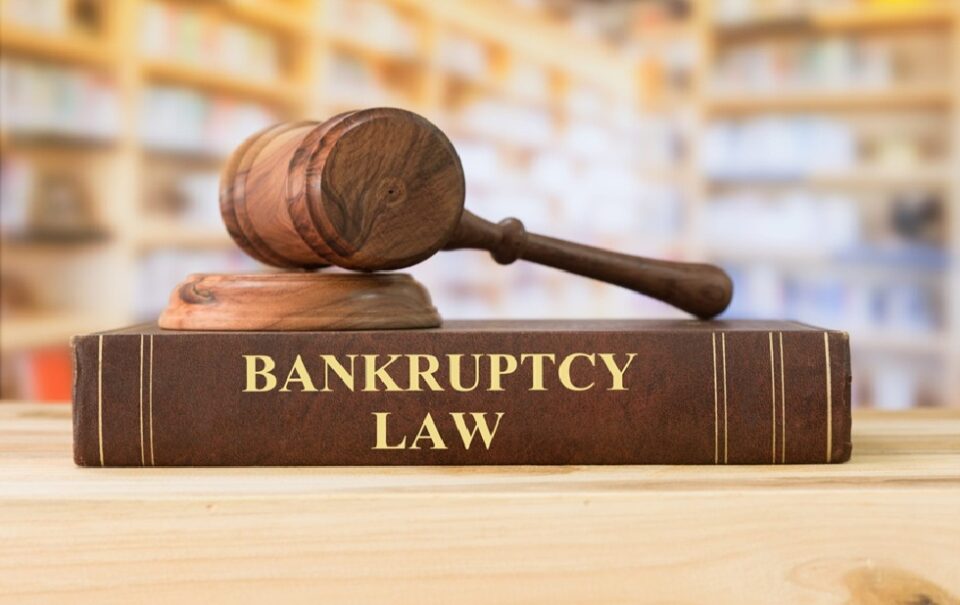Navigating bankruptcy can be a challenging experience, particularly if you are unsure where to seek help. Our team of bankruptcy lawyers in Iowa possesses the expertise needed to guide you through this complex process. By leveraging our knowledge and experience, we aim to provide the essential support and advice required during these difficult times.
We understand that financial struggles can be overwhelming, and finding the right legal representation is crucial. That’s why we offer a free consultation to discuss your specific situation and explore the best path forward. This initial meeting allows us to assess your needs and ensure that we can provide the tailored solutions you require.
Let us assist you in understanding your options and help you find relief from financial burdens. Our dedicated professionals are here to protect your interests and work towards a fresh start. Through compassionate and personalized service, we strive to make the bankruptcy process as smooth and stress-free as possible.Learn more about Bankruptcy Lawyers in Iowa
Understanding Bankruptcy in Iowa
Navigating bankruptcy in Iowa involves understanding various chapters of the bankruptcy code and how they apply to our situations. We need to consider factors such as eligibility criteria and methods for protecting assets within the framework of bankruptcy law.
Types of Bankruptcy

In Iowa, the primary bankruptcy types we encounter are Chapter 7 and Chapter 13. Chapter 7 bankruptcy, known as liquidation bankruptcy, allows us to discharge most unsecured debts, but it may require selling non-exempt assets. Chapter 13, or reorganization bankruptcy, permits us to retain our assets while using a repayment plan, typically lasting three to five years, to settle debts. Understanding which type suits our financial situation is crucial. Both have distinct implications on our credit and financial future.
The Bankruptcy Process
Filing for bankruptcy in Iowa generally entails several steps. Initially, we must gather all relevant financial documents, including a list of creditors and assets. Next, the filing involves submitting a petition to the bankruptcy court. Upon filing, an automatic stay is triggered, halting creditors’ collection activities. After filing, we will attend a meeting of creditors, where we answer questions about our financial situation under oath. Proper adherence to these steps ensures smoother progression through the bankruptcy process. Finally, completing required financial counseling and obtaining a discharge or repayment plan is essential.
Eligibility and Means Test
Determining eligibility for Chapter 7 bankruptcy involves the means test. This test assesses our income against the median income for Iowa. Those with income lower than the median may qualify for Chapter 7. If our income exceeds this threshold, we may need to look into Chapter 13 options. For Chapter 13, we must demonstrate the ability to make regular payments and adhere to a committed repayment schedule. Our comprehensive understanding of these eligibility criteria enables us to make informed decisions about the appropriate bankruptcy chapter.
Protecting Your Assets
Bankruptcy law includes provisions that allow us to protect certain assets through exemptions. In Iowa, we can typically safeguard specific items such as our home, vehicle, and personal property, up to certain limits. Using the Iowa exemptions effectively ensures that filing for bankruptcy does not result in excessive asset loss. It is vital to identify and apply these exemptions correctly to maximize protection. Consulting with a qualified bankruptcy lawyer can help us navigate these exemptions strategically, allowing us to retain essential assets while resolving significant debt problems.
Choosing a Bankruptcy Lawyer
When selecting a bankruptcy lawyer, it’s crucial to consider their expertise, experience, and the ethical standards they uphold. Addressing legal fees and consultation processes is also vital to ensure transparent and fair services. Our focus is on these critical aspects, providing clarity for those seeking legal assistance.
Expertise and Specializations
We should first look into the lawyer’s expertise and the specializations they offer. Bankruptcy attorneys in Iowa often specialize in either Chapter 7 or Chapter 13 filings. Choosing someone with a focus in the area we need ensures more effective handling of our case.
In-depth knowledge of state-specific laws is essential. It’s important to check if the lawyer we consider has certifications or a strong academic background in bankruptcy law. Specialized knowledge often leads to more efficient problem solving and advocacy for our interests.
The Importance of Experience
Experience plays a significant role when selecting a bankruptcy lawyer. An attorney with years of hands-on experience is likely familiar with intricate aspects of bankruptcy proceedings. They’ve encountered diverse cases, enhancing their ability to navigate potential challenges smoothly.
We should evaluate the lawyer’s track record. Reviewing past case outcomes where the attorney acted as a primary advocate can provide insight into their proficiency and success rates. A seasoned lawyer often has well-established relations with local courts, which can facilitate the legal process.
Evaluating Ethical Standards
Understanding a lawyer’s ethical standards is imperative. It’s critical that we choose a professional who adheres to a high level of integrity and honesty. We can check their standing with the Iowa State Bar Association to ensure no disciplinary actions have been taken against them.
Reading client reviews and testimonials can offer insights into the lawyer’s ethical conduct and client treatment. A bankruptcy lawyer who prioritizes ethical practice will communicate transparently and maintain our confidences, fostering trust throughout legal proceedings.
Consultation and Legal Fees
Legal consultations are often the initial step to engaging a lawyer. Some bankruptcy attorneys offer free consultations, allowing us to gauge their approach and determine whether they align with our needs. During these meetings, discussing anticipated legal fees upfront is essential.
Legal fees for bankruptcy may vary based on case complexity and the lawyer’s reputation. Requesting a clear fee structure or estimate can help in financial planning. Transparent discussions about costs ensure we are aware of what we are committing to, avoiding unexpected financial burdens later.

